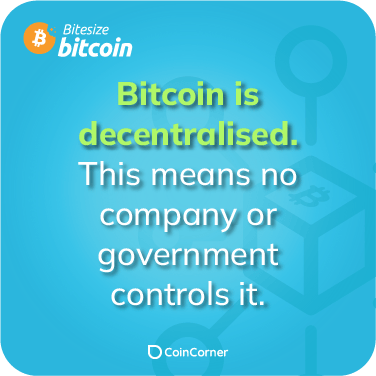Is Bitcoin decentralised?

Peer-to-Peer Network
Bitcoin operates on a peer-to-peer network, where participants (nodes) communicate directly with each other without the need for intermediaries. This eliminates the need for a central authority or server to facilitate transactions and validate the network.
Distributed Ledger
Bitcoin utilises a distributed ledger called the blockchain, which is a public record of all transactions ever conducted on the network. This ledger is replicated and maintained by multiple nodes across the network. Every participant has a copy of the blockchain, ensuring that no single entity controls or manipulates the transaction history.
Consensus Mechanism
Bitcoin employs a consensus mechanism called Proof of Work (PoW) to validate and confirm transactions. Miners compete to solve complex mathematical puzzles, and the first one to solve it adds a new block of transactions to the blockchain. This decentralized mining process prevents any single entity from controlling the validation of transactions.
Decentralised Governance
Bitcoin's governance is decentralised, meaning there is no central authority or governing body that dictates the rules or policies of the network. Changes or improvements to the Bitcoin protocol are proposed, discussed, and implemented through consensus among participants, primarily developers, miners, and users.
Open Source Protocol
Bitcoin's software code is open source, meaning it is publicly available for scrutiny, review, and modification by anyone. This transparency ensures that the protocol's rules and operations are accessible to the public, promoting trust and enabling independent verification of its decentralised nature.
Immutable Transactions
Once a transaction is confirmed and added to the blockchain, it becomes practically immutable. Altering or reversing a transaction requires a significant amount of computational power and coordination among the network's participants. This immutability ensures that transactions are resistant to censorship or manipulation by any central authority.
User Sovereignty
Bitcoin empowers individuals by providing them with full control over their funds. Users hold private keys that grant them access to their Bitcoin wallets and enable them to initiate transactions. This eliminates the need for trusted intermediaries, such as banks, and allows users to be in complete control of their financial assets.
Share this fact:





